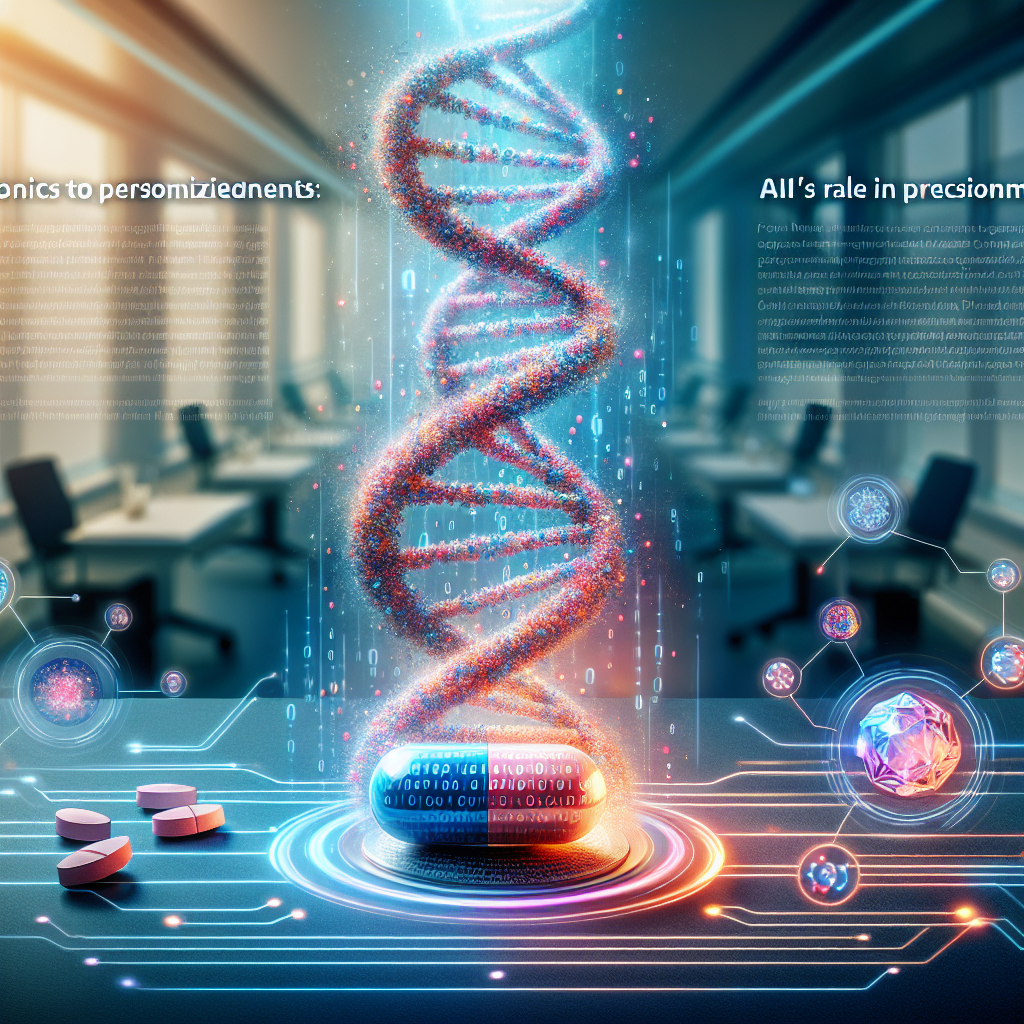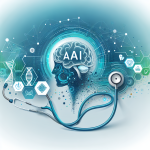[ad_1]
Advancements in genomics and artificial intelligence (AI) have revolutionized the field of medicine, particularly in the area of personalized treatments. The ability to decode an individual’s genetic makeup and analyze vast amounts of data using AI algorithms has opened up new possibilities for tailoring medical treatments to the specific needs of patients. This article explores the role of AI in precision medicine and how it is transforming the way healthcare professionals deliver personalized care.
Genomics and Personalized Medicine
Genomics is the study of an organism’s complete set of DNA, including all of its genes. By analyzing an individual’s genetic information, healthcare providers can gain valuable insights into their predisposition to certain diseases, how they may respond to particular medications, and what lifestyle changes could improve their overall health. This information is crucial for developing personalized treatment plans that are more effective and targeted than traditional one-size-fits-all approaches.
Personalized medicine takes into account an individual’s unique genetic makeup, as well as other factors such as their environment, lifestyle, and medical history. By understanding how these factors interact, healthcare providers can tailor treatments to address the specific needs of each patient, leading to better outcomes and fewer adverse reactions.
AI’s Role in Precision Medicine
AI plays a crucial role in personalized medicine by helping healthcare professionals analyze and interpret vast amounts of genomic data quickly and accurately. Machine learning algorithms can identify patterns and associations in genetic information that may not be apparent to human researchers, allowing for more precise and targeted treatment decisions.
One of the key benefits of AI in precision medicine is its ability to predict how a patient will respond to a particular treatment based on their genetic profile. By analyzing data from thousands of patients with similar genetic characteristics, AI algorithms can identify the most effective treatment options for an individual, reducing the need for costly and time-consuming trial-and-error approaches.
AI can also assist healthcare providers in diagnosing rare and complex genetic conditions more accurately. By comparing a patient’s genetic information with vast databases of genomic data, AI algorithms can help identify the underlying causes of their condition and recommend the most appropriate treatment options.
Challenges and Opportunities
While AI holds great promise for personalized medicine, there are still challenges that need to be addressed in order to fully realize its potential. One of the biggest challenges is the need for more comprehensive and diverse datasets to train AI algorithms effectively. Genomic data is often limited in its scope and quality, which can hinder the accuracy of AI predictions.
Another challenge is ensuring the privacy and security of sensitive genetic information. As more healthcare providers and researchers rely on AI to analyze genomic data, there are concerns about how this information is being used and shared. It is crucial to establish robust data protection mechanisms to safeguard patient confidentiality and prevent misuse of genetic data.
Despite these challenges, there are numerous opportunities for AI to further advance personalized medicine. By continuing to improve AI algorithms and expand genomic databases, healthcare providers can develop more accurate and targeted treatments for a wide range of conditions. Additionally, AI can help identify new drug targets and biomarkers, leading to the development of novel therapies that may not have been possible using traditional research methods.
Conclusion
Genomics and AI are revolutionizing the field of personalized medicine, empowering healthcare providers to deliver more effective and targeted treatments to patients. By harnessing the power of AI to analyze genomic data, healthcare professionals can develop personalized treatment plans that take into account an individual’s unique genetic makeup and other factors that influence their health. While there are challenges to overcome, the opportunities for AI in precision medicine are vast, with the potential to improve patient outcomes and transform the way healthcare is delivered.
Frequently Asked Questions
Q: How does AI analyze genomic data?
A: AI algorithms use machine learning techniques to analyze vast amounts of genomic data, identifying patterns and associations that may not be apparent to human researchers. By comparing genetic information with large databases of genomic data, AI can predict how a patient will respond to a particular treatment and recommend the most effective options.
Q: What are the benefits of personalized medicine?
A: Personalized medicine allows healthcare providers to tailor treatments to the specific needs of each patient, leading to better outcomes and fewer adverse reactions. By taking into account an individual’s genetic makeup, as well as other factors such as their environment and lifestyle, personalized medicine can improve the effectiveness and efficiency of medical treatments.
Q: Are there any concerns about the use of AI in precision medicine?
A: One of the main concerns about the use of AI in precision medicine is the need to ensure the privacy and security of sensitive genetic information. It is crucial for healthcare providers to establish robust data protection mechanisms to safeguard patient confidentiality and prevent misuse of genomic data.
[ad_2]


